- Home
- Diana Palmer
Passion Flower Page 2
Passion Flower Read online
Page 2
“Miss King?” Robert Culhane asked on a laugh. “Still want to go to Texas?”
“Oh, yes!” she said fervently, holding tightly to the telephone cord.
“Then pack a bag and be at the ranch bright and early a week from Monday morning. Got a pencil? Okay, here’s how to get there.”
She was so excited she could barely scribble. She got down the directions. “I can’t believe it, it’s like a dream!” she said enthusiastically. “I’ll do a good job, really I will. I won’t be any trouble, and the pay doesn’t matter!”
“I’ll tell Everett,” he chuckled. “Don’t forget. You needn’t call. Just come on out to the ranch. I’ll be there to smooth things over with old Everett, okay?”
“Okay. Thank you!”
“Thank you, Miss King,” he said. “See you a week from Monday.”
“Yes, sir!” She hung up, her face bright with hope. She was actually going to Texas!
“Miss King?” Miss James asked suspiciously.
“Oh! I won’t be back in after today, Miss James,” she said politely. “Thank you for letting me work with you. I’ve enjoyed it very much.”
Miss James looked angry. “You can’t just walk out like this,” she said.
“But I can,” Jennifer said, with some of her old spirit. She picked up her purse. “I didn’t sign a contract, Miss James. And if you were to push the point, I’d tell you that I worked a great deal of overtime for which I wasn’t paid,” she added with a pointed stare. “How would you explain that to the people down at the state labor department?”
Miss James stiffened. “You’re ungrateful.”
“No, I’m not. I’m very grateful. But I’m leaving, all the same. Good day.” She nodded politely just before she went out, and closed the door firmly behind her.
Chapter Two
IT WAS blazing hot for a spring day in Texas. Jennifer stopped in the middle of the ranch road to rest for a minute and set her burdens down on the dusty, graveled ground. She wished for the tenth time in as many minutes that she’d let the cab driver take her all the way to the Culhanes’ front door. But she’d wanted to walk. It hadn’t seemed a long way from the main road. And it was so beautiful, with the wildflowers strewn across the endless meadows toward the flat horizon. Bluebonnets, which she’d only read about until then, and Mexican hat and Indian paintbrush. Even the names of the flowers were poetic. But her enthusiasm had outweighed her common sense. And her strength.
She’d tried to call the ranch from town—apparently Everett and Robert Culhane did have the luxury of a telephone. But it rang and rang with no answer. Well, it was Monday, and she’d been promised a job. She hefted her portable typewriter and her suitcase and started out again.
Her pale eyes lifted to the house in the distance. It was a two-story white frame building, with badly peeling paint and a long front porch. Towering live oaks protected it from the sun, trees bigger than anything Jennifer had seen in Georgia. And the feathery green trees with the crooked trunks had to be mesquite. She’d never seen it, but she’d done her share of reading about it.
On either side of the long, graveled driveway were fences, gray with weathering and strung with rusting barbed wire. Red-coated cattle grazed behind the fences, and her eyes lingered on the wide horizon. She’d always thought Georgia was big—until now. Texas was just unreal. In a separate pasture, a mare and her colt frolicked in the hot sun.
Jennifer pushed back a strand of dull blond hair that had escaped from her bun. In a white shirtwaist dress and high heels, she was a strange sight to be walking up the driveway of a cattle ranch. But she’d wanted to make a good impression.
Her eyes glanced down ruefully at the red dust on the hem of her dress, and the scuff marks on her last good pair of white sling pumps. She could have cried. One of her stockings had run, and she was sweating. She could hardly have looked worse if she’d planned it.
She couldn’t help being a little nervous about the older brother. She had Everett Culhane pictured as a staid old rancher with a mean temper. She’d met businessmen like that before, and dealt with them. She wasn’t afraid of him. But she hoped that he’d be glad of her help. It would make things easier all around.
Her footsteps echoed along the porch as she walked up the worn steps. She would have looked around more carefully weeks ago, but now she was tired and run-down and just too exhausted to care what her new surroundings looked like.
She paused at the screen door, and her slender fingers brushed the dust from her dress. She put the suitcase and the typewriter down, took a steadying breath, and knocked.
There was no sound from inside the house. The wooden door was standing open, and she thought she heard the whir of a fan. She knocked again. Maybe it would be the nice young man she’d met in Atlanta who would answer the door. She only hoped she was welcome.
The sound of quick, hard footsteps made her heart quicken. Someone was home, at least. Maybe she could sit down. She was feeling a little faint.
“Who the hell are you?” came a harsh masculine voice from behind the screen door, and Jennifer looked up into the hardest face and the coldest dark eyes she’d ever seen.
She couldn’t even find her voice. Her immediate reaction was to turn around and run for it. But she’d come too far, and she was too tired.
“I’m Jennifer King,” she said as professionally as she could. “Is Robert Culhane home, please?”
She was aware of the sudden tautening of his big body, a harsh intake of breath, before she looked up and saw the fury in his dark eyes.
“What the hell kind of game are you playing, lady?” he demanded.
She stared at him. It had been a long walk, and now it looked as if she might have made a mistake and come to the wrong ranch. Her usual confidence faltered. “Is this the Circle C Ranch?” she asked.
“Yes, it is.”
He wasn’t forthcoming, and she wondered if he might be one of the hired hands. “Is this where Robert Culhane lives?” she persisted, trying to peek past him—there was a lot of him, all hard muscle and blue denim.
“Bobby was killed in a bus wreck a week ago,” he said harshly.
Jennifer was aware of a numb feeling in her legs. The long trip on the bus, the heavy suitcase, the effects of her recent illness—all of it added up to exhaustion. And those cold words were the final blow. With a pitiful little sound, she sank down onto the porch, her head whirling, nausea running up into her throat like warm water.
The screen door flew open and a pair of hard, impatient arms reached down to lift her. She felt herself effortlessly carried, like a sack of flour, into the cool house. She was unceremoniously dumped down onto a worn brocade sofa and left there while booted feet stomped off into another room. There were muttered words that she was glad she couldn’t understand, and clinking sounds. Then, a minute later, a glass of dark amber liquid was held to her numb lips and a hard hand raised her head.
She sipped at the cold, sweet iced tea like a runner on the desert when confronted with wet salvation. She struggled to catch her breath and sat up, gently nudging the dark, lean hand holding the glass to one side. She breathed in deeply, trying to get her whirling mind to slow down. She was still trying to take it all in. She’d been promised a job, she’d come hundreds of miles at her own expense to work for minimum wage, and now the man who’d offered it to her was dead. That was the worst part, imagining such a nice young man dead.
“You look like a bleached handkerchief,” the deep, harsh voice observed.
She sighed. “You ought to write for television. You sure do have a gift for prose.”
His dark eyes narrowed. “Walking in this heat without a hat. My God, how many stupid city women are there in the world? And what landed you on my doorstep?”
She lifted her eyes then, to look at him properly. He was d
arkly tanned, and there were deep lines in his face, from the hatchet nose down to the wide, chiseled mouth. His eyes were deep-set, unblinking under heavy dark brows and a wide forehead. His hair was jet-black, straight and thick and a little shaggy. He was wearing what had to be work clothes: faded denim jeans that emphasized long, powerfully muscled legs, and a matching shirt whose open neck revealed a brown chest thick with short, curling hair. He had the look of a man who was all business, all the time. All at once she realized that this man wasn’t the hired hand she’d mistaken him for.
“You’re Everett Culhane,” she said hesitantly.
His face didn’t move. Not a muscle in it changed position, but she had the distinct feeling that the sound of his name on her lips had shocked him.
She took another long sip of the tea and sighed at the pleasure of the icy liquid going down her parched throat.
“How far did you walk?” he asked.
“Just from the end of your driveway,” she admitted, looking down at her ruined shoes. “Distance is deceptive out here.”
“Haven’t you ever heard of sunstroke?”
She nodded. “It just didn’t occur to me.”
She put the glass down on the napkin he’d brought with it. Well, this was Texas. How sad that she wouldn’t see anything more of it.
“I’m very sorry about your brother, Mr. Culhane,” she said with dignity. “I didn’t know him very well, but he seemed like a nice man.” She got up with an odd kind of grace despite the unsteadiness of her legs. “I won’t take up any more of your time.”
“Why did you come, Miss King?”
She shook her head. “It doesn’t matter now in the least.” She turned and went out the screen door, lifting her suitcase and typewriter from where they’d fallen when she fainted. It was going to be a long walk back to town, but she’d just have to manage it. She had bus fare back home and a little more. A cab was a luxury now, with no job at the end of her long ride.
“Where do you think you’re going?” Everett Culhane asked from behind her, his tone like a whiplash.
“Back to town,” she said without turning. “Good-bye, Mr. Culhane.”
“Walking?” he mused. “In this heat, without a hat?”
“Got here, didn’t I?” she drawled as she walked down the steps.
“You’ll never make it back. Wait a minute. I’ll drive you.”
“No, thanks,” she said proudly. “I get around all right by myself, Mr. Culhane. I don’t need any handouts.”
“You’ll need a doctor if you try that walk,” he said, and turned back into the house.
She thought the matter was settled, until a battered red pickup truck roared up beside her and stopped. The passenger door flew open.
“Get in,” he said curtly, in a tone that made it clear he expected instant obedience.
“I said...” she began irritatedly.
His dark eyes narrowed. “I don’t mind lifting you in and holding you down until we get to town,” he said quietly.
With a grimace, she climbed in, putting the typewriter and suitcase on the floorboard.
There was a marked lack of conversation. Everett smoked his cigarette with sharp glances in her direction when she began coughing. Her lungs were still sensitive, and he seemed to be smoking shucks or something equally potent. Eventually he crushed out the cigarette and cracked a window.
“You don’t sound well,” he said suddenly.
“I’m getting over pneumonia,” she said, staring lovingly at the horizon. “Texas sure is big.”
“It sure is.” He glanced at her. “Which part of it do you call home?”
“I don’t.”
The truck lurched as he slammed on the brakes. “What did you say?”
“I’m not a Texan,” she confessed. “I’m from Atlanta.”
“Georgia?”
“Is there another one?”
He let out a heavy breath. “What the hell did you mean, coming this distance just to see a man you hardly knew?” he burst out. “Surely to God, it wasn’t love at first sight?”
“Love?” She blinked. “Heavens, no. I only did some typing for your brother.”
He cut off the engine. “Start over. Start at the beginning. You’re giving me one hell of a headache. How did you wind up out here?”
“Your brother offered me a job,” she said quietly. “Typing. Of course, he said there’d be other duties as well. Cooking, cleaning, things like that. And a very small salary,” she added with a tiny smile.
“He was honest with you, at least,” he growled. “But then why did you come? Didn’t you believe him?”
“Yes, of course,” she said hesitantly. “Why wouldn’t I want to come?”
He started to light another cigarette, stared hard at her, and put the pack back in his shirt pocket. “Keep talking.”
He was an odd man, she thought. “Well, I’d lost my old job, because once I got over the pneumonia I was too weak to keep up the pace. I got a job in Atlanta with one of the temporary talent agencies doing typing. My speed is quite good, and it was something that didn’t wring me out, you see. Mr. Culhane wanted some letters typed. We started talking,” she smiled, remembering how kind he’d been, “and when I found out he was from Texas, from a real ranch, I guess I just went crazy. I’ve spent my whole life listening to my grandfather relive his youth in Texas, Mr. Culhane. I’ve read everything Zane Grey and Louis L’Amour ever wrote, and it was the dream of my life to come out here. The end of the rainbow. I figured that a low salary on open land would be worth a lot more than a big salary in the city, where I was choking to death on smog and civilization. He offered me the job and I said yes on the spot.” She glanced at him ruefully. “I’m not usually so slow. But I was feeling so bad, and it sounded so wonderful...I didn’t even think about checking with you first. Mr. Culhane said he’d have it all worked out, and that I was just to get on a bus and come on out today.” Her eyes clouded. “I’m so sorry about him. Losing the job isn’t nearly as bad as hearing that he...was killed. I liked him.”
Everett’s fingers were tapping an angry pattern on the steering wheel. “A job.” He laughed mirthlessly, then sighed. “Well, maybe he had a point. I’m so behind on my production records and tax records, it isn’t funny. I’m choking to death on my own cooking, the house hasn’t been swept in a month...” He glanced at her narrowly. “You aren’t pregnant?”
Her pale eyes flashed at him. “That, sir, would make medical history.”
One dark eyebrow lifted and he glanced at her studiously before he smiled. “Little Southern lady, are you really that innocent?”
“Call me Scarlett and, unemployment or no unemployment, I’ll paste you one, cowboy,” she returned with a glimmer of her old spirit. It was too bad that the outburst triggered a coughing spree.
“Damn,” he muttered, passing her his handkerchief. “All right, I’ll stop baiting you. Do you want the job, or don’t you? Robert was right about the wages. You’ll get bed and board free, but it’s going to be a frugal existence. Interested?”
“If it means getting to stay in Texas, yes, I am.”
He smiled. “How old are you, schoolgirl?”
“I haven’t been a schoolgirl for years, Mr. Culhane,” she told him. “I’m twenty-three, in fact.” She glared at him. “How old are you?”
“Make a guess,” he invited.
Her eyes went from his thick hair down the hawklike features to his massive chest, which tapered to narrow hips, long powerful legs, and large, booted feet. “Thirty,” she said.
He chuckled softly. It was the first time she’d heard the deep, pleasant sound, and it surprised her to find that he was capable of laughter. He didn’t seem like the kind of man who laughed very often.
His eyes wandered over her thin body with
amused indifference, and she regretted for a minute that she was such a shadow of her former self. “Try again, honey,” he said.
She noticed then the deep lines in his darkly tanned face, the sprinkling of gray hair at his temples. In the open neck of his shirt, she could see threads of silver among the curling dark hair. No, he wasn’t as young as she’d first thought.
“Thirty-four,” she guessed.
“Add a year and you’ve got it.”
She smiled. “Poor old man,” she said with gentle humor.
He chuckled again. “That’s no way to talk to your new boss,” he cautioned.
“I won’t forget again, honestly.” She stared at him. “Do you have other people working for you?”
“Just Eddie and Bib,” he said. “They’re married.” He nodded as he watched her eyes become wide and apprehensive. “That’s right. We’ll be alone. I’m a bachelor and there’s no staff in the house.”
“Well...”
“There’ll be a lock on your door,” he said after a minute. “When you know me better, you’ll see that I’m pretty conventional in my outlook. It’s a big house. We’ll rattle around like two peas in a pod. It’s only on rare occasions that I’m in before bedtime.” His dark eyes held hers. “And for the record, my taste doesn’t run to city girls.”
That sounded as if there was a good reason for his taste in women, but she didn’t pry. “I’ll work hard, Mr. Culhane.”
“My name is Everett,” he said, watching her. “Or Rett, if you prefer. You can cook meals and do the laundry and housekeeping. And when you have time, you can work in what passes for my office. Wages won’t be much. I can pay the bills, and that’s about it.”
“I don’t care about getting rich.” Meanwhile she was thinking fast, sorely tempted to accept the offer, but afraid of the big, angry man at her side. There were worse things than being alone and without money, and she didn’t really know him at all.

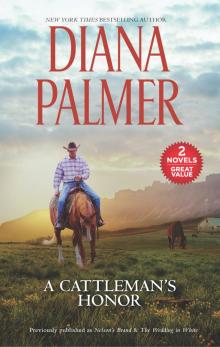 A Cattleman's Honor
A Cattleman's Honor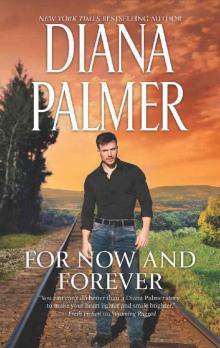 For Now and Forever
For Now and Forever Texas Proud and Circle of Gold
Texas Proud and Circle of Gold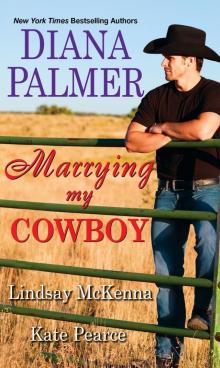 Marrying My Cowboy
Marrying My Cowboy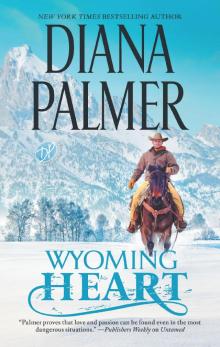 Wyoming Heart
Wyoming Heart Christmas Kisses with My Cowboy
Christmas Kisses with My Cowboy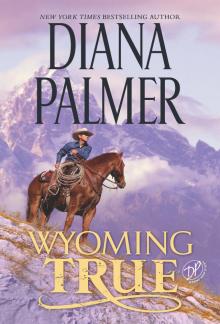 Wyoming True
Wyoming True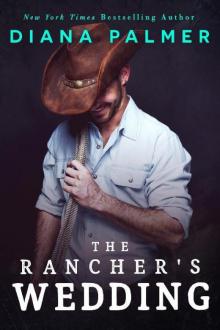 The Rancher's Wedding
The Rancher's Wedding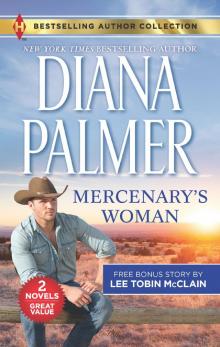 Mercenary's Woman ; Outlawed!
Mercenary's Woman ; Outlawed! Long, Tall Texans: Stanton ; Long, Tall Texans: Garon
Long, Tall Texans: Stanton ; Long, Tall Texans: Garon Lawless
Lawless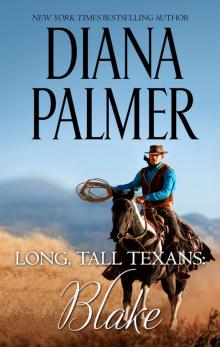 Blake
Blake Escapade
Escapade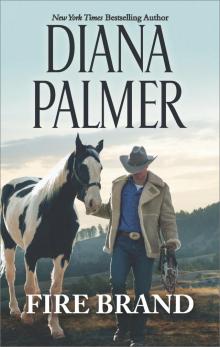 Fire Brand
Fire Brand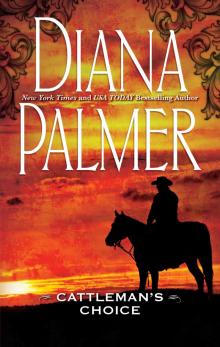 Cattleman's Choice
Cattleman's Choice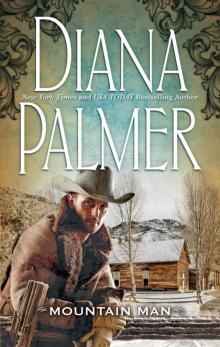 Mountain Man
Mountain Man Long, Tall and Tempted
Long, Tall and Tempted A Love Like This
A Love Like This Miss Greenhorn
Miss Greenhorn Magnolia
Magnolia Lord of the Desert
Lord of the Desert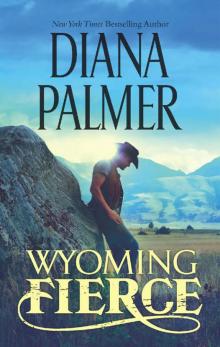 Wyoming Fierce
Wyoming Fierce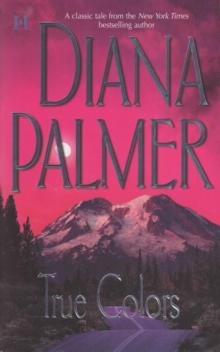 True Colors
True Colors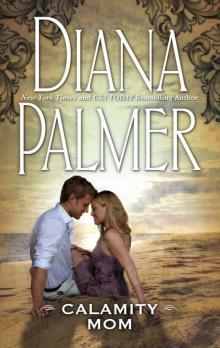 Calamity Mom
Calamity Mom The Pursuit
The Pursuit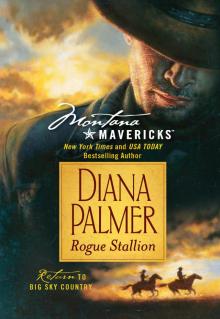 Rogue Stallion
Rogue Stallion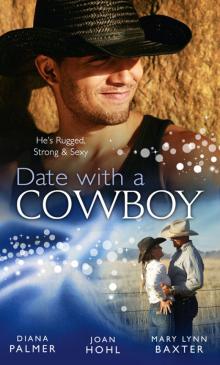 Date with a Cowboy
Date with a Cowboy Heart of Winter
Heart of Winter Friends and Lovers
Friends and Lovers Love on Trial
Love on Trial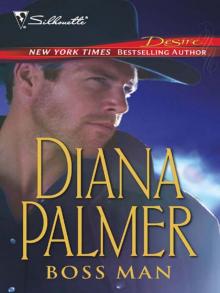 Boss Man
Boss Man Callaghan's Bride
Callaghan's Bride Before Sunrise
Before Sunrise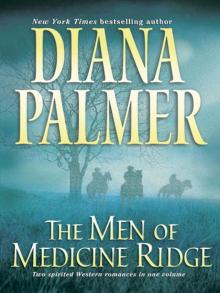 The Men of Medicine Ridge
The Men of Medicine Ridge Texas Proud
Texas Proud Wyoming Tough
Wyoming Tough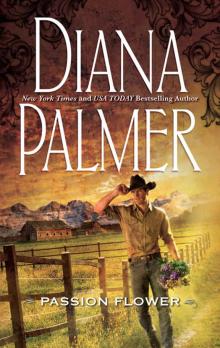 Passion Flower
Passion Flower Maggie's Dad
Maggie's Dad Donavan
Donavan The Rancher & Heart of Stone
The Rancher & Heart of Stone Long, Tall Texans: Tom
Long, Tall Texans: Tom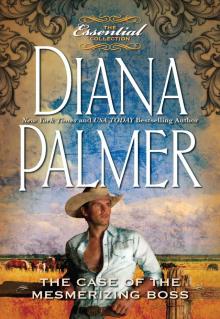 The Case of the Mesmerizing Boss
The Case of the Mesmerizing Boss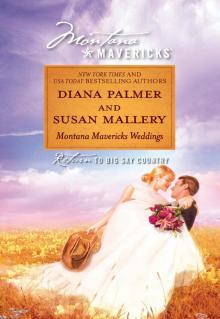 Montana Mavericks Weddings
Montana Mavericks Weddings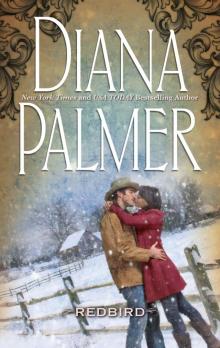 Redbird
Redbird Wyoming Strong
Wyoming Strong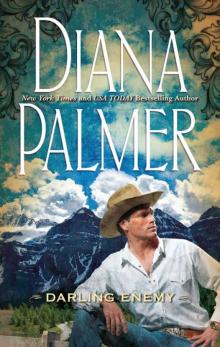 Darling Enemy
Darling Enemy Love by Proxy
Love by Proxy Coltrain's Proposal
Coltrain's Proposal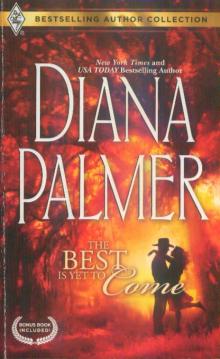 The Best Is Yet to Come & Maternity Bride
The Best Is Yet to Come & Maternity Bride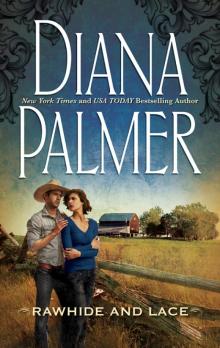 Rawhide and Lace
Rawhide and Lace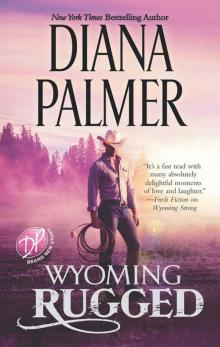 Wyoming Rugged
Wyoming Rugged Patient Nurse
Patient Nurse Undaunted
Undaunted Long Tall Texans Series Book 13 - Redbird
Long Tall Texans Series Book 13 - Redbird Outsider
Outsider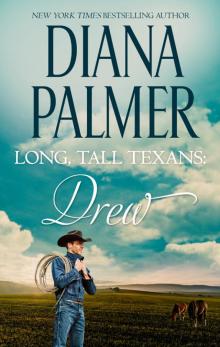 Long, Tall Texans: Drew
Long, Tall Texans: Drew Long, Tall Texans--Christopher
Long, Tall Texans--Christopher Merciless
Merciless A Match Made Under the Mistletoe
A Match Made Under the Mistletoe Evan
Evan Hunter
Hunter Now and Forever
Now and Forever Hard to Handle
Hard to Handle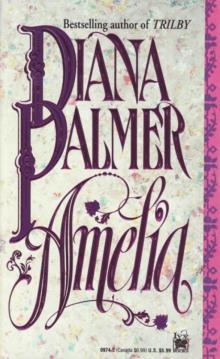 Amelia
Amelia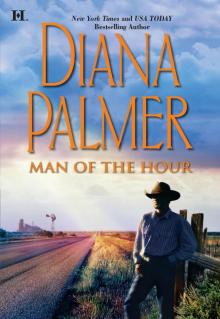 Man of the Hour
Man of the Hour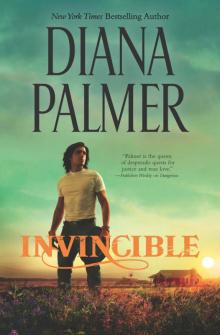 Invincible
Invincible The Maverick
The Maverick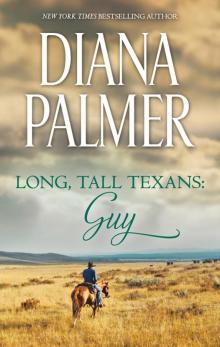 Long, Tall Texans--Guy
Long, Tall Texans--Guy Noelle
Noelle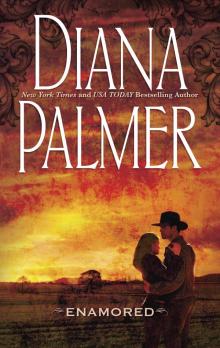 Enamored
Enamored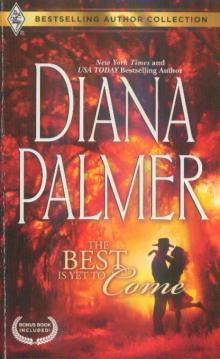 The Best Is Yet to Come
The Best Is Yet to Come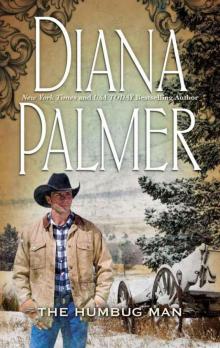 The Humbug Man
The Humbug Man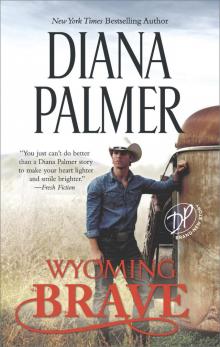 Wyoming Brave
Wyoming Brave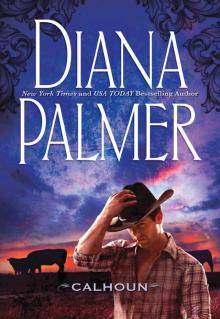 Calhoun
Calhoun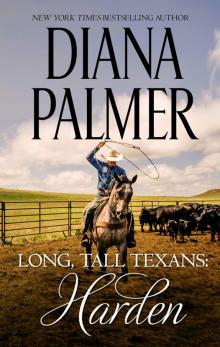 Long, Tall Texans--Harden
Long, Tall Texans--Harden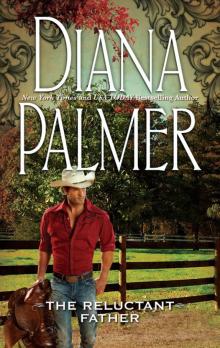 The Reluctant Father
The Reluctant Father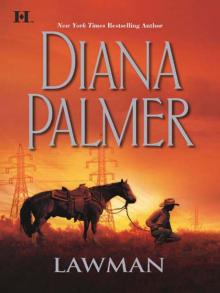 Lawman
Lawman Long, Tall Texans: Hank & Ultimate Cowboy ; Long, Tall Texans: Hank
Long, Tall Texans: Hank & Ultimate Cowboy ; Long, Tall Texans: Hank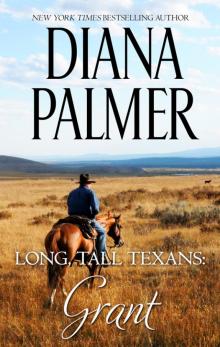 Grant
Grant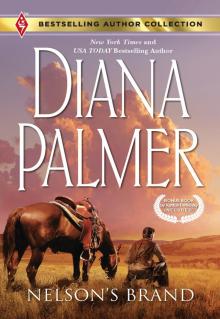 Nelson's Brand
Nelson's Brand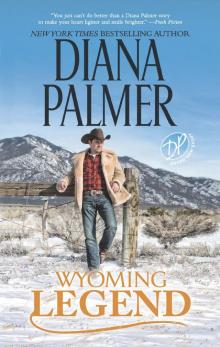 Wyoming Legend
Wyoming Legend Diamond Spur
Diamond Spur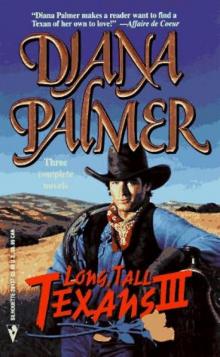 That Burke Man
That Burke Man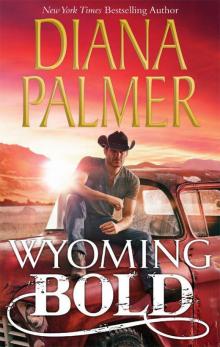 Wyoming Bold (Mills & Boon M&B)
Wyoming Bold (Mills & Boon M&B) Heartless
Heartless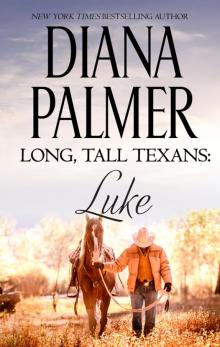 Long, Tall Texans--Luke
Long, Tall Texans--Luke To Have and to Hold
To Have and to Hold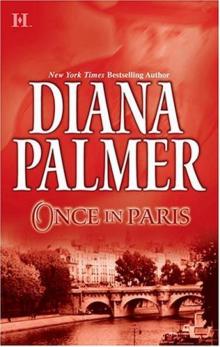 Once in Paris
Once in Paris A Husband for Christmas: Snow KissesLionhearted
A Husband for Christmas: Snow KissesLionhearted Night Fever
Night Fever Beloved
Beloved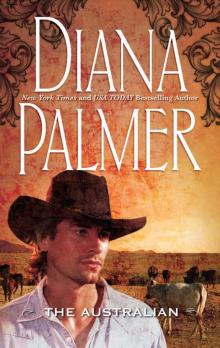 The Australian
The Australian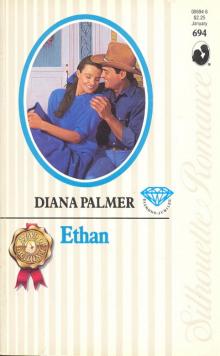 Ethan
Ethan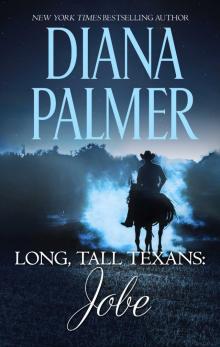 Long, Tall Texans: Jobe
Long, Tall Texans: Jobe Bound by Honor: Mercenary's WomanThe Winter Soldier
Bound by Honor: Mercenary's WomanThe Winter Soldier Tender Stranger
Tender Stranger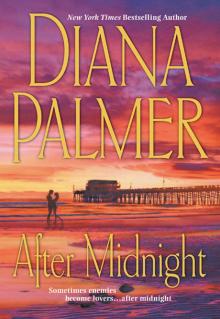 After Midnight
After Midnight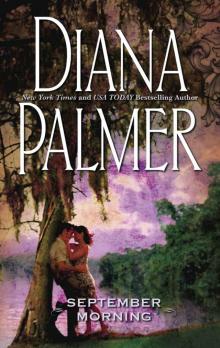 September Morning
September Morning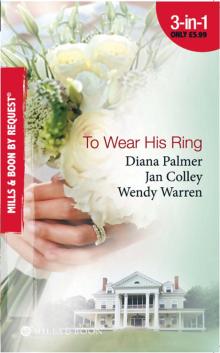 To Wear His Ring
To Wear His Ring Heartbreaker
Heartbreaker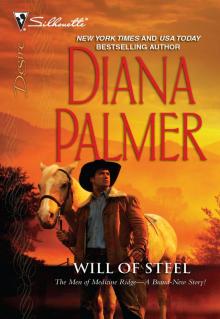 Will of Steel
Will of Steel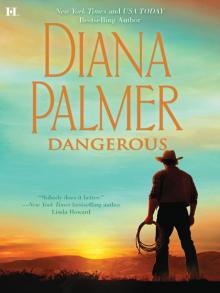 Dangerous
Dangerous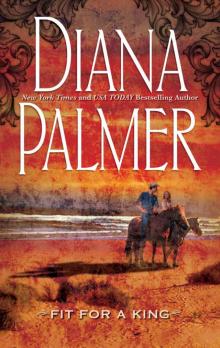 Fit for a King
Fit for a King Diamond in the Rough
Diamond in the Rough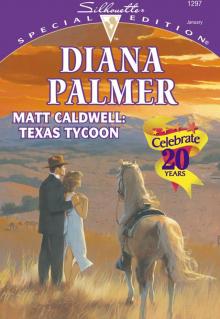 Matt Caldwell: Texas Tycoon
Matt Caldwell: Texas Tycoon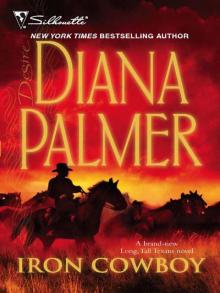 Iron Cowboy
Iron Cowboy Fire And Ice
Fire And Ice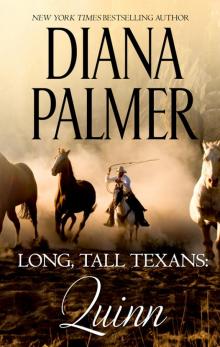 Long, Tall Texans--Quinn--A Single Dad Western Romance
Long, Tall Texans--Quinn--A Single Dad Western Romance Montana Mavericks, Books 1-4
Montana Mavericks, Books 1-4 Denim and Lace
Denim and Lace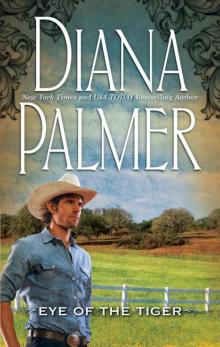 Eye of the Tiger
Eye of the Tiger The Princess Bride
The Princess Bride Long, Tall Texans: Rey ; Long, Tall Texans: Curtis ; A Man of Means ; Garden Cop
Long, Tall Texans: Rey ; Long, Tall Texans: Curtis ; A Man of Means ; Garden Cop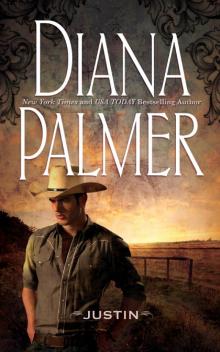 Justin
Justin Nora
Nora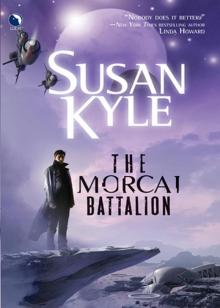 The Morcai Battalion
The Morcai Battalion Heart of Stone
Heart of Stone The Morcai Battalion: The Recruit
The Morcai Battalion: The Recruit To Love and Cherish
To Love and Cherish Invictus
Invictus Regan's Pride
Regan's Pride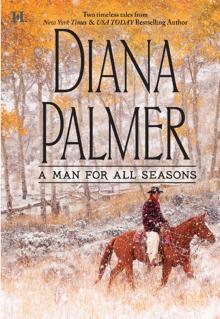 A Man for All Seasons
A Man for All Seasons Sweet Enemy
Sweet Enemy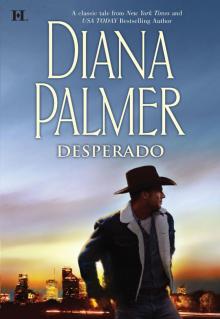 Desperado
Desperado Lacy
Lacy The Winter Man
The Winter Man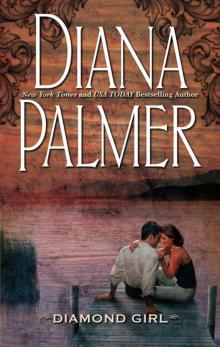 Diamond Girl
Diamond Girl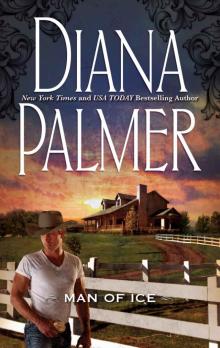 Man of Ice
Man of Ice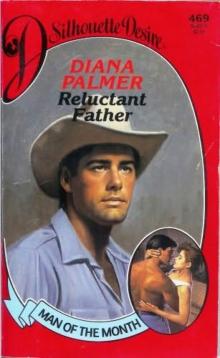 Reluctant Father
Reluctant Father Christmas with My Cowboy
Christmas with My Cowboy Love with a Long, Tall Texan
Love with a Long, Tall Texan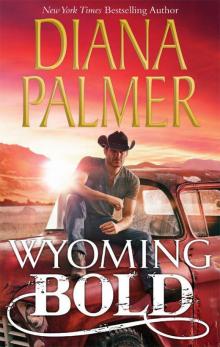 Wyoming Bold wm-3
Wyoming Bold wm-3 King's Ransom
King's Ransom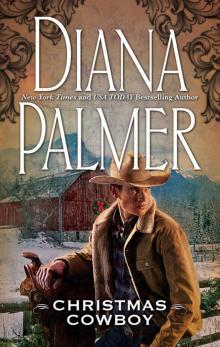 Christmas Cowboy
Christmas Cowboy Heart of Ice
Heart of Ice Fearless
Fearless Long, Tall Texans_Hank
Long, Tall Texans_Hank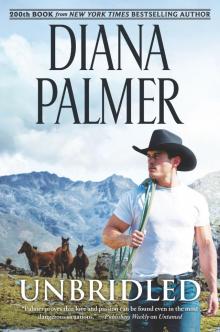 Unbridled
Unbridled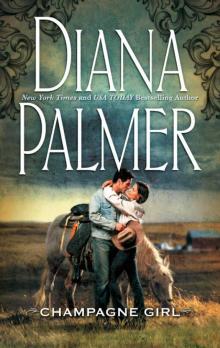 Champagne Girl
Champagne Girl The Greatest Gift
The Greatest Gift Storm Over the Lake
Storm Over the Lake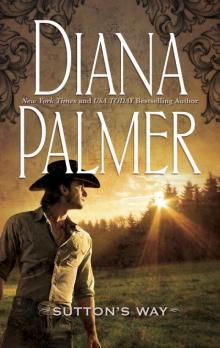 Sutton's Way
Sutton's Way Lionhearted
Lionhearted Renegade
Renegade Betrayed by Love
Betrayed by Love Dream's End
Dream's End All That Glitters
All That Glitters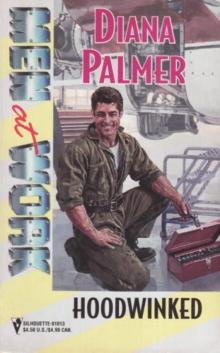 Hoodwinked
Hoodwinked Soldier of Fortune
Soldier of Fortune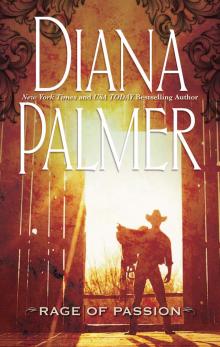 Rage of Passion
Rage of Passion Winter Roses
Winter Roses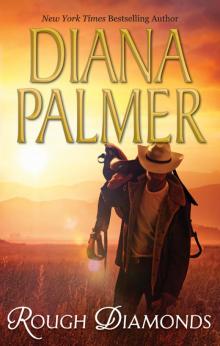 Rough Diamonds: Wyoming ToughDiamond in the Rough
Rough Diamonds: Wyoming ToughDiamond in the Rough Protector
Protector Emmett
Emmett True Blue
True Blue The Tender Stranger
The Tender Stranger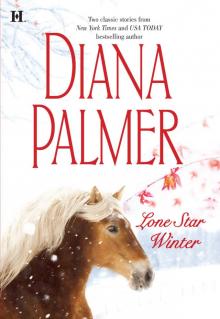 Lone Star Winter
Lone Star Winter Man in Control
Man in Control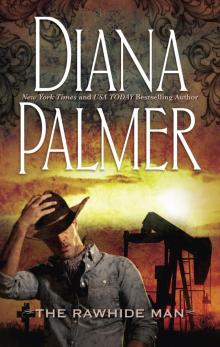 The Rawhide Man
The Rawhide Man Untamed
Untamed Midnight Rider
Midnight Rider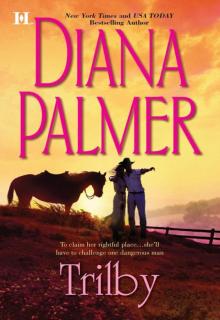 Trilby
Trilby A Long Tall Texan Summer
A Long Tall Texan Summer Tangled Destinies
Tangled Destinies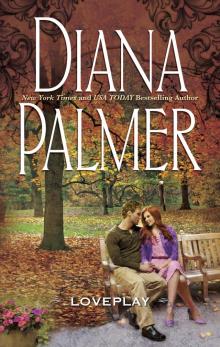 LovePlay
LovePlay Blind Promises
Blind Promises Carrera's Bride
Carrera's Bride Calamity Mum
Calamity Mum Long, Tall Texan Legacy
Long, Tall Texan Legacy Bound by Honor
Bound by Honor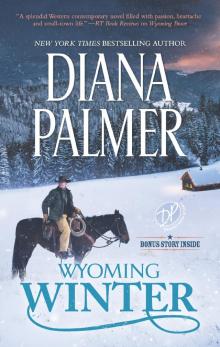 Wyoming Winter--A Small-Town Christmas Romance
Wyoming Winter--A Small-Town Christmas Romance Mystery Man
Mystery Man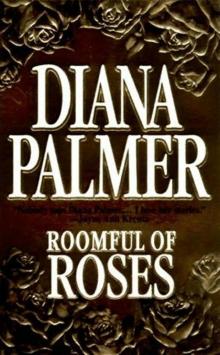 Roomful of Roses
Roomful of Roses Defender
Defender Bound by a Promise
Bound by a Promise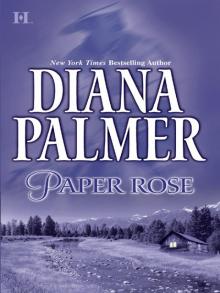 Paper Rose
Paper Rose If Winter Comes
If Winter Comes Circle of Gold
Circle of Gold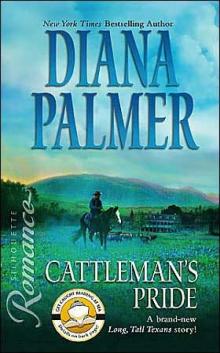 Cattleman's Pride
Cattleman's Pride The Texas Ranger
The Texas Ranger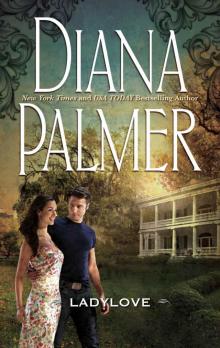 Lady Love
Lady Love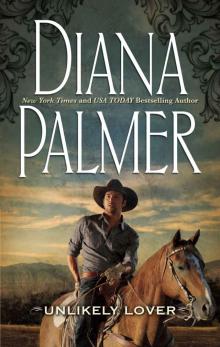 Unlikely Lover
Unlikely Lover A Man of Means
A Man of Means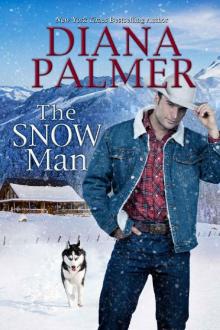 The Snow Man
The Snow Man The Case of the Missing Secretary
The Case of the Missing Secretary Harden
Harden Tough to Tame
Tough to Tame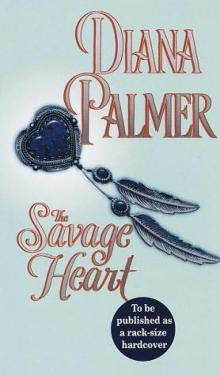 The Savage Heart
The Savage Heart